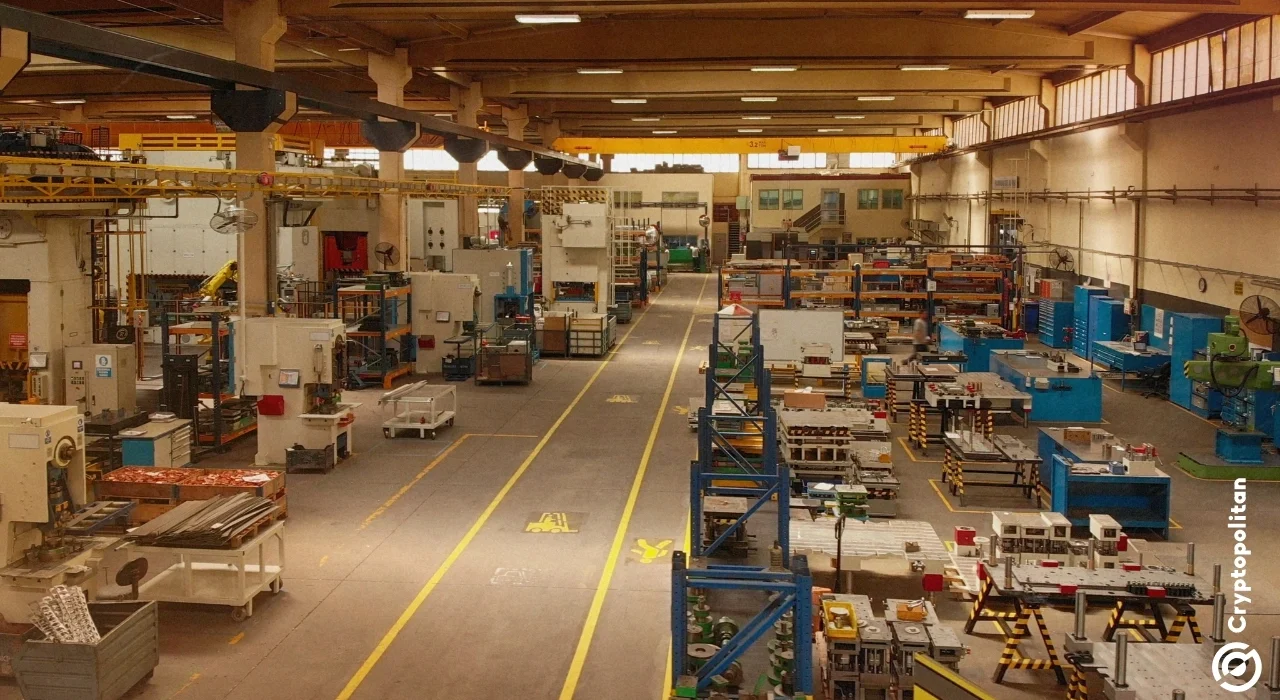China’s factories hit the brakes in April as fresh U.S. tariffs cooled new orders and pushed manufacturers to cut jobs, a private survey showed Wednesday.
Caixin and S&P Global April manufacturing purchasing managers’ index (PMI) slipped to 50.4 from March’s 51.2. The 50-point line separates growth from contraction. The result, the lowest since January, still topped the average forecast in a Reuters poll.
The slowdown arrived as Beijing resisted rolling out new stimulus and waited out what officials expected would be a long trade dispute with Washington. On the same day, the government’s own PMI pointed to an even quicker fall in activity.
“The ripple effects of the ongoing China-U.S. tariff standoff will gradually be felt in the second and third quarters,” said Wang Zhe, economist at Caixin Insight Group. “Policymakers should be well-prepared, with action taken sooner rather than later.”
Demand from abroad is already fading. The survey recorded the sharpest drop in new export business since July 2023, leaving only a slight overall rise in total new orders. Factories kept output growing, but at a slower pace, by working through existing backlogs.
Supplier delivery times have lengthened in China, and hiring reduced
Producers also reduced inventories, while business confidence slipped to its third-lowest level since the series began in April 2012. Managers blamed the trade uncertainty for their caution.
Trade disruptions and supply snags slightly lengthened supplier delivery times in April. At the same time, weak demand for raw materials and fiercer competition among vendors drove another fall in average input costs.
Hiring has also reduced noticeably. After a brief gain in March, manufacturing employment dropped last month as some workers resigned and companies moved ahead with restructuring plans to cut costs.
Foreign trade is a major source of employment. Former Premier Li Keqiang said in 2020 that the Premier sector supports about 180 million jobs, directly or indirectly.
At the Politburo meeting last week, China’s top leaders promised help for firms and workers most exposed to the impact of U.S. tariffs that now run in the triple digits on some goods. On Monday, senior officials from several economic ministries tried to calm worries that the levies could knock China’s fragile recovery off course.
Beijing has offered assistance to exporters who are willing to shift more sales to the domestic market, yet many firms hesitate. They cite weak local demand, bruising price battles, thin margins, slow payments, and high product return rates at home.
Cryptopolitan Academy: Coming Soon – A New Way to Earn Passive Income with DeFi in 2025. Learn More
